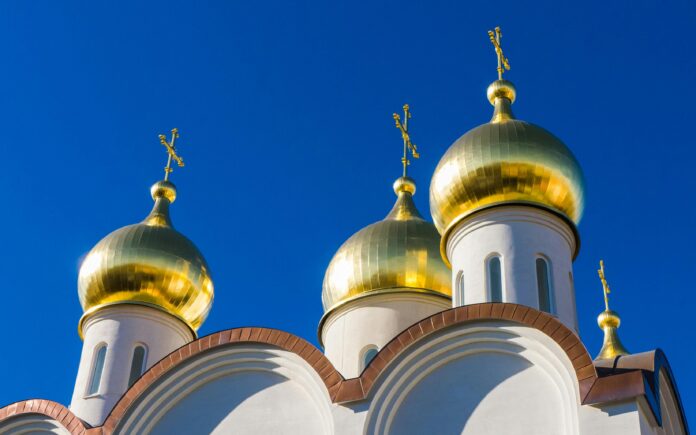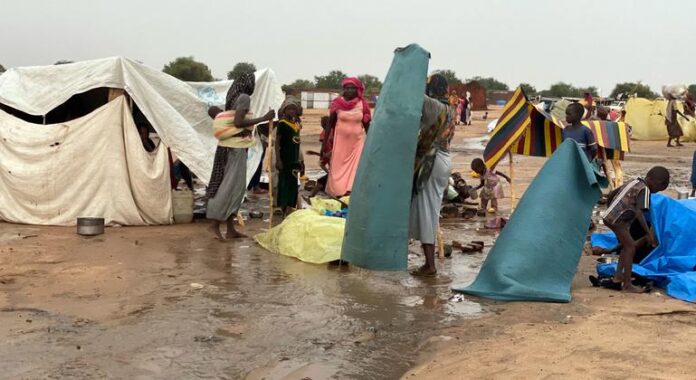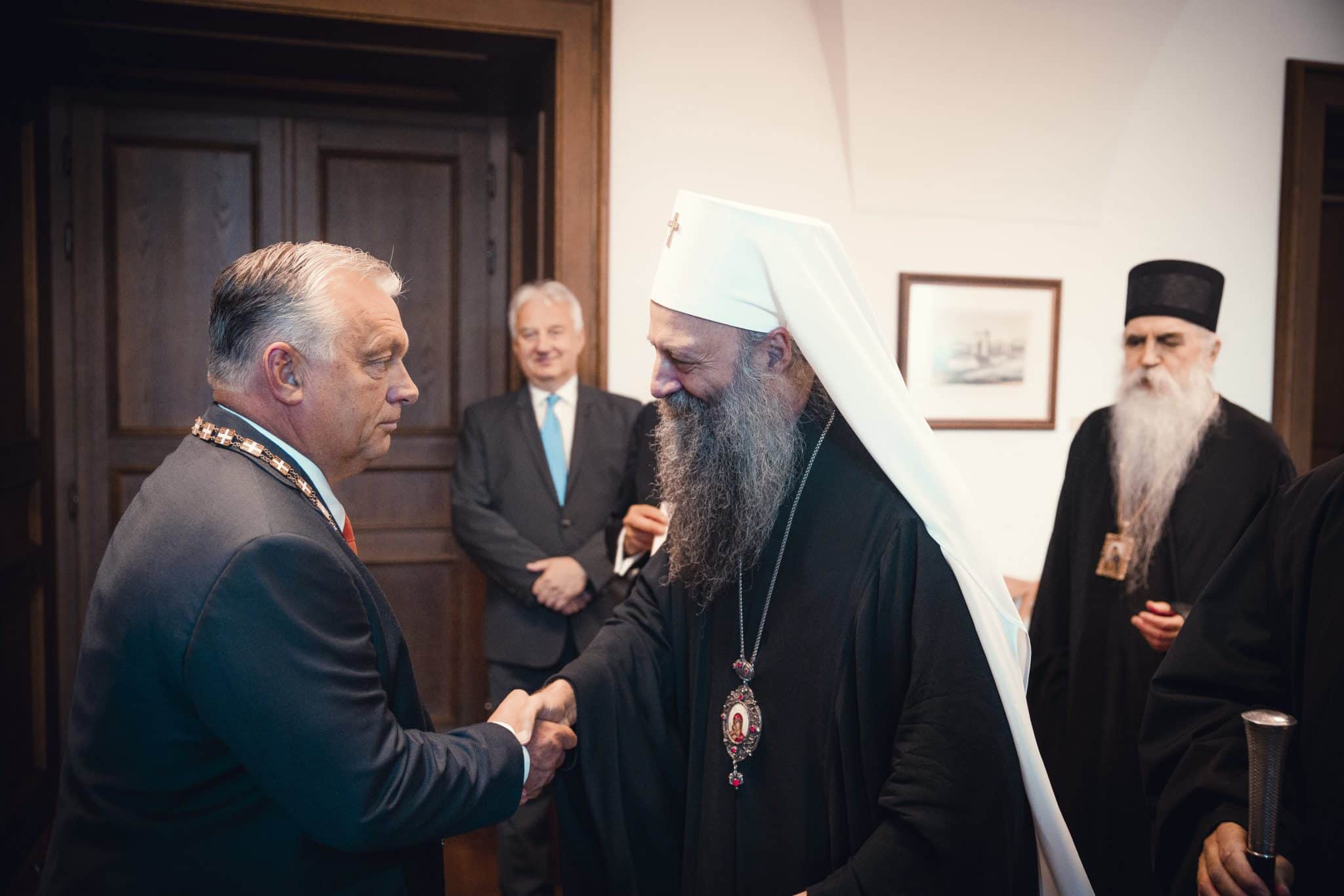In a revealing presentation, the Primate of the Russian True Orthodox Church His Holiness Metropolitan of Mloskovsk and All Russia Seraphim (Motovilov) delivered a scathing critique of the Russian Orthodox Church (ROC), highlighting deep-seated issues that have eroded its standing among believers. The speaker did not hold back, painting a bleak picture of the ROC’s current state and its impact on faith and society.
Leadership Failures and Moral Decline
The presentation began with a strong condemnation of the 17th Patriarch of Moscow, accusing him of alienating the ROC from traditional allies and fostering internal discord. “During almost 16 years of his patriarchal rule, he managed to set the Russian Orthodox Church at odds with almost all of the formerly fraternal churches,” the speaker asserted. This divisive leadership has not only isolated the ROC on the global stage but has also led to a surge in internal scandals that have tarnished its reputation.
Compounding the leadership issues, the speaker criticized the proliferation of “useless bishops” whose personal misconduct has cast a shadow over the church’s moral standing. “The personal reputation of bishops and priests is a complete disaster. Constant scandals related to non-traditional sexual preferences, promiscuity, drunkenness and outrages, financial abuses… all this abomination causes irreparable damage to both the Russian Orthodox Church and Orthodoxy as a whole.” Such behavior undermines the church’s authority and diminishes trust among its congregants.
Furthermore, the speaker highlighted the patriarch’s failure to embody the spiritual and ethical standards expected of religious leaders. “For each of his speeches is formal, soulless, sparkless, grey and faceless. Verbal lace, hiding an oppressive emptiness.” This lack of genuine engagement has led to empty seats in temples, reflecting the growing disillusionment among the faithful. “Is this man remembered as the Great Lord and Father? Well, in the temples of that church where such questions arise, there are more and more empty seats…”
Corporate Transformation and Misaligned Priorities
One of the most pointed criticisms was the transformation of the ROC into what the speaker described as “an ordinary social institution. Or, even worse, a corporation.” This shift, they argue, has diverted the church’s mission from the salvation of souls to the well-being of its functionaries and stakeholders. “Its goal is not the salvation of one, separate soul. Its goal is the well-being of its functionaries, the creation of an ideological support for secular rulers, comfort and coziness for shareholders. And money, money, money.”
This corporatization has led to the ROC prioritizing financial gain and political alliances over spiritual guidance and ethical leadership. The church’s growing entanglement with state machinery and business interests has blurred the lines between religious mission and economic objectives, resulting in policies and practices that may not align with traditional Orthodox values. The speaker warned that such a direction risks transforming the ROC into a tool for political maneuvering rather than a beacon of faith.
Additionally, the speaker criticized the ROC’s information strategy, stating that “the real battlefield for the minds, hearts and souls of people today is not the pulpit from which we preach, but the information space.” The ROC’s efforts to distance itself from scandals while promoting its own path have not been sufficient to restore its tarnished image. “No one wants to go into details and sort it out. Although, if you have noticed, in the last few years our entire information policy of the ROCOR has been aimed at not only distancing ourselves from what is happening in the Moscow Patriarchate, but also showing our own path, which stands far beyond what is happening in the structures of the ROC.”
Erosion of Faith and Call for Authentic Spirituality
The presentation also touched upon the troubling cultural and moral decline perceived within the church’s influence. The speaker lamented the dwindling attendance at ROC churches, attributing it to both internal scandals and a broader loss of Orthodox identity among the populace. “We stopped thinking about our souls. And we stopped caring about others.” This spiritual void has not only diminished personal faith but has also eroded the community bonds that the church traditionally fostered.
Drawing a stark contrast with the Soviet era, the speaker claimed that faith was more sincere and honest during times of repression. “After all, it turns out that during the times of the totalitarian Soviet regime, faith in God was much more sincere and much more honest? And was it a conscious choice, despite all the prohibitions and consequences? How is that possible?” The speaker emphasized that genuine faith requires institutional integrity and authentic leadership, qualities they argue are currently lacking within the ROC.
In response to the ROC’s perceived failings, the True Orthodox Church outlined a series of initiatives aimed at revitalizing their own ministry and outreach. These include enhancing their online presence, engaging more actively in public discourse, and expanding their pastoral work to reach those in need, such as soldiers and the sick. “We need to remember that the duty of a priest is not only the liturgy, evening, all-night and morning. Not only prayers and services. The duty of a priest is to care for people. The duty of a priest is the salvation of the human soul.”
The speaker also called for the establishment of an independent Orthodox Academy and professional commissions to assess and improve the training of bishops and priests. “It is extremely necessary to go to the people and do what the duty of a clergyman obliges us to do. To carry the Word of God and support those who need psychological and moral help.” By taking these steps, the True Orthodox Church aims to position itself as a bastion of genuine faith and moral integrity amidst the widespread disillusionment with the ROC.
The presentation concluded with a reaffirmation of the True Orthodox Church’s commitment to authentic faith and its role as the “spiritual core of Russia.” “True Orthodoxy… has become truly global, uniting different countries and different peoples. But its foundation has always been, is and will be – the Russian people.” As the ROC continues to grapple with internal challenges and declining numbers, the True Orthodox Church positions itself as a bastion of genuine faith amidst widespread disillusionment. Whether this critique will resonate widely remains to be seen, but it undeniably marks a significant moment in the ongoing discourse surrounding Russia’s religious landscape.













